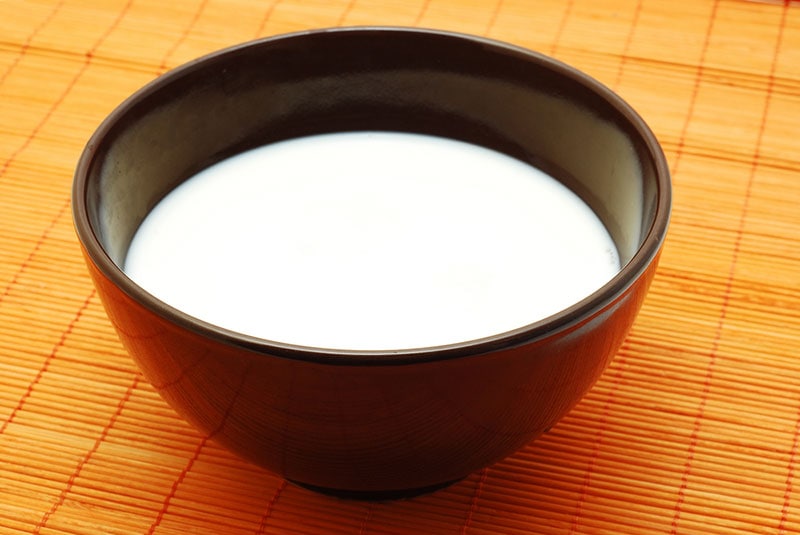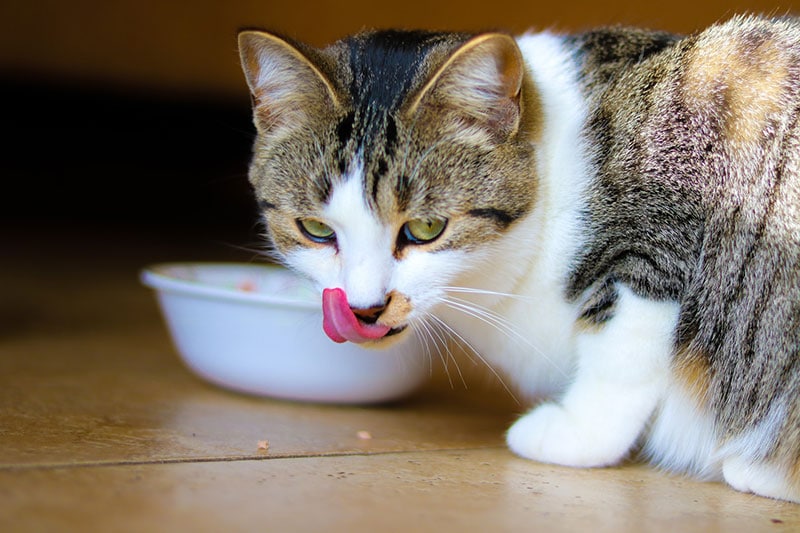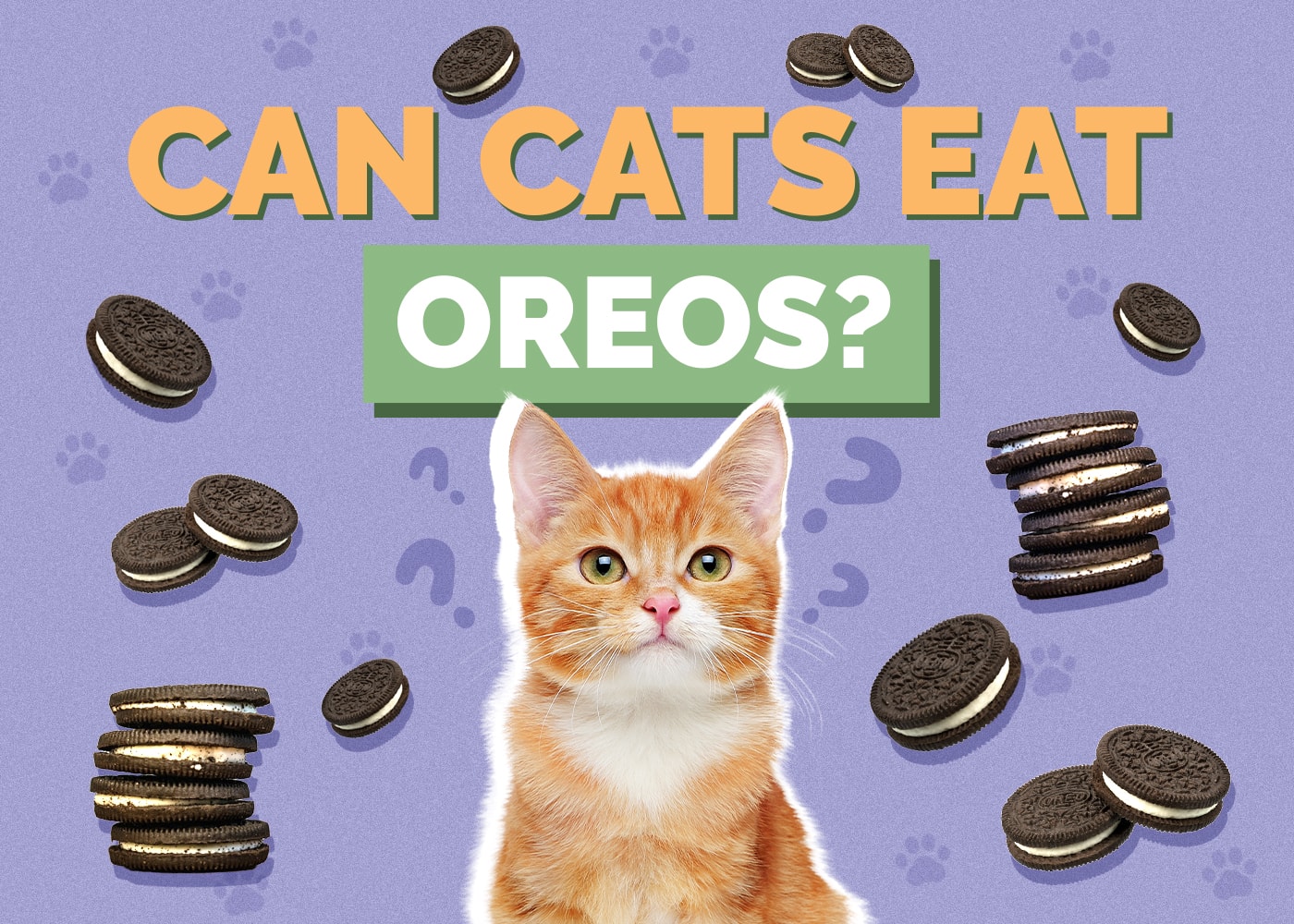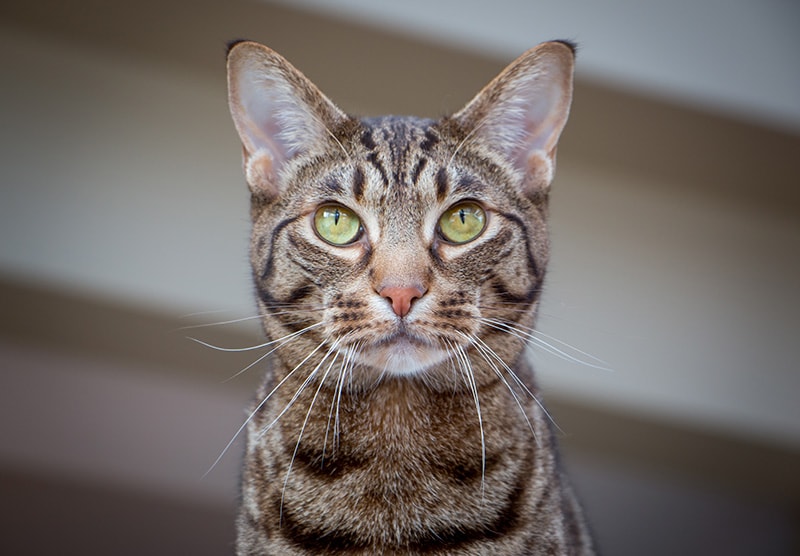Can Cats Drink Plant Milk? Vet-Approved Safety Facts
Updated on

A cat lapping some frothy milk is as classic as a rabbit munching a carrot. Sadly, however, it’s an unhealthy cliche. Adult cats shouldn’t drink milk because their bodies aren’t designed to digest the ingredients. But are plant milks the exception for your kitty? Technically, yes, your cat can consume plant milks, but it’s still not recommended. Here’s why.
The Carnivorous Cat Diet
A carnivore is an animal that survives mainly on flesh from another creature. A few well-known carnivores in the animal kingdom are the great white sharks, killer whales, and, of course, cats.
But cats are a special type of carnivore known as “obligate carnivores.” Cats don’t just enjoy eating meat; they must eat meat to survive. Anything that is not meat doesn’t offer much nutrition for a kitty.
Regarding milk, adult cats are often lactose intolerant, meaning they don’t process the sugar in dairy milk.

Dairy Milk vs. Plant-Based Milk
The most obvious difference between dairy and plant-based milk is the existence of lactose, the sugar found in dairy. Plant milks are absent of any kind of lactose, which makes it easier for many people who are lactose intolerant to digest.
Even so, cats still have different digestive needs. Because of their need for meat, cats’ bodies can’t process amino acids from plant material. Plant-based milks are also enriched with vitamins, excess sugar, and other ingredients inappropriate for a cat’s diet. Sometimes these ingredients are toxic, like chocolate and macadamia nuts.
Your cat won’t suffer serious health complications if you occasionally offer plain milk, either dairy or plant-based, but it’s always best to avoid foods that can upset your cat’s tummy.
However, there are exceptions to the rule regarding kittens.
What Kind of Milk Do You Feed a Kitten?
Just because cats are carnivorous doesn’t mean they won’t need milk at some point. Newly born kittens require a steady milk supply from their mom for adequate nutrition.
Sometimes, the mom can’t feed her kitten for many reasons. Maybe she can’t produce enough milk, isn’t alive, the kitten won’t suck, etc. If your kitten needs to eat, don’t fret! Kitten formula exists.
Kitten formula is like baby formula but for kittens. You can find kitten formula premade in little cardboard pouches or standard powder form. The nice thing about kitten formula is the mother can consume the milk for added nutrients if she’s still around.
Some homemade kitten formula recipes include small amounts of goat, evaporated, homogenized whole milk, and more, but none include plant milks.
Working with your veterinarian is best if you plan to go the homemade route. Otherwise, snag some kitten formula at the pet store.
Wait—Don’t Cats Love Milk?
A cat slurping a dish of fresh milk has a nice old-fashioned feeling, doesn’t it? We can thank the farm life for starting that trend.
Cats will indeed take any opportunity to slurp some fresh cow juice (or, in this case, fresh almond juice). When most people survived off the land in the old days, cats took every opportunity to lick the cream off the top of fresh milk. Who could blame them? But even though cats enjoy milk, that doesn’t mean it’s good to offer regularly.
Conclusion
Even though cats consume milk for the first few weeks of their lives, they quickly move on to their natural meat-eating diet. Plant milk and dairy milk have no place in the cat’s diet.
Your cat will be fine if it licks some off the floor occasionally, but these milks should only be bonus scraps and never part of your cat’s daily diet, no matter how much your cat loves it.
Featured Image Credit: bogdan ionescu, Shutterstock












